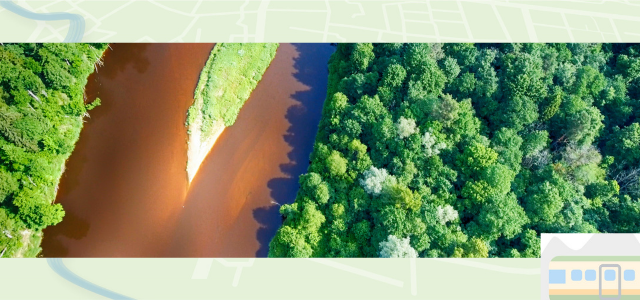"There are 263 large RBOs around the world, and hundreds of transboundary aquifers. RBOs can play an extremely important role in the implementation of international water law, and at the same time they are important to implement the Sustainable Development Goals (SDGs). There are different types of institutions that manage basins, different types of RBOs, and a variety of functions assigned to RBOs," explained event Co-Chair Barbara Janusz-Pawletta, GWP Technical Committee Member and Vice-Rector on International Cooperation at the Kazakh-German University, as she set the scene for the event together with the second Co-Chair Alistair Rieu-Clarke, School of Law, Northumbria University.
Christina Leb, World Bank Senior Counsel, introduced the basics and structures of RBOs, “or, as they are called in international law, joint mechanisms”, said Leb. She highlighted the permanence of the different types of RBO agreements – for instance if they are based on international treaties or based on ministerial meetings. RBOs are important platforms for cooperation to implement and achieve sustainability in shared water resource management, which is why the permanence matters, said Leb.
Ivan Zavadsky, Executive Secretary of the International Commission for the Protection of the Danube River (ICPDR), shared an overview of the structure and mandate of ICPDR. He explained that one of the successes behind their work is understanding that " there can be no progress in water resources management without transboundary cooperation, and River Basin Management is the only functioning water management mechanism". Public participation and consultations are other key elements to ICPDR’s success.
Sebastian Izquierdo is the Former Binational Coordinator of the Integrated Water Resources Management (IWRM) Transboundary Project in Ecuador and Peru. He explained the what, why, and how of the Binational Commission for IWRM in the Ecuadorian–Peruvian transboundary basins. He also shared some of the challenges – for instance, political instability in both governments which has led to frequent changes of ministers, causing delays to projects.
The webinar series is based on the Massive Open Online Course (MOOC) on Governance for Transboundary Freshwater Security, which was developed by GWP and GEF IW:LEARN, and other global partners and experts. “Since opening the MOOC in August 2020, it has attracted over 1,900 participants from 145 countries around the world,” said GWP Senior Network & Transboundary Water Cooperation Specialist Yumiko Yasuda.
Watch the full recording of the session:
Coming up:
The ‘Transboundary Freshwater Security Governance Train’ continues in the coming months, with the following events planned:
Session 4: International Water Law & Climate Change (20 April 2021): What strategies are there to help countries adapt to/tackle climate change within a transboundary contact? What are the legal challenges and how can national, regional and global legal requirements be addressed?
Session 5: International Water Law & Infrastructure Projects (18 May 2021): What are the legal rules and procedures for building major infrastructure? How does international water law, human rights and international investment law combine to deal with these issues?
Session 6: International Water Law & Groundwater (15 June 2021): How is transboundary groundwater governed – what are the legal rules that apply and how to implement these in practice? Focus on existing best practice and key challenges.

